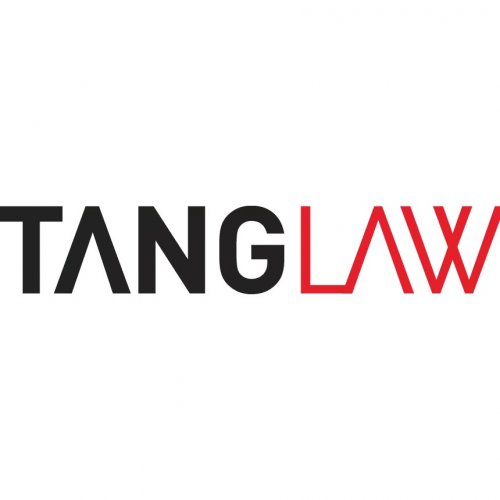Best Collaborative Law Lawyers in Australia
Share your needs with us, get contacted by law firms.
Free. Takes 2 min.
Free Guide to Hiring a Family Lawyer
Or refine your search by selecting a city:
List of the best lawyers in Australia
About Collaborative Law in Australia
Collaborative Law is a legal process primarily used to resolve disputes without going to court. In Australia, it is a popular approach, especially in family law matters such as divorces and separations. The process is geared toward enabling both parties to negotiate an agreement collaboratively, with the assistance of their respective lawyers. This method seeks to promote open communication, transparency, and cooperative problem-solving, catering to the interests of all involved parties. The goal is to reach a settlement amicably, saving time, resources, and emotional stress associated with courtroom battles.
Why You May Need a Lawyer
Seeking a lawyer in Collaborative Law is beneficial in various situations where disputes or legal processes require amicable resolution. Common scenarios include:
- Divorce or separation settlements where both parties agree to work together.
- Child custody arrangements needing cooperative resolution.
- Property and financial settlements that require fair distribution between parties.
- Negotiations in business partnerships or shareholder disputes.
- Disputes in family-owned businesses where maintaining relationships is crucial.
A lawyer helps to navigate the legal complexities, ensures each party's interests are represented and guides the collaborative process effectively.
Local Laws Overview
Australia's legal framework supports Collaborative Law as an alternative to litigation. The key aspects include:
- The Family Law Act 1975: Governs family-related legal matters and provides provisions for alternative dispute resolution processes like Collaborative Law.
- Confidentiality and Transparency: Ensures all negotiations within the collaborative process remain private, fostering honest communication.
- No Court Agreement: As part of the collaborative process, both parties and their lawyers commit in writing to avoid litigation, promoting settlement-focused discussions.
- Interdisciplinary Approach: Incorporates other professionals such as financial advisors or psychologists to address various aspects of the dispute.
Collaborative Law is recognized for empowering parties to play an active role in resolving their disputes outside the conventional court system.
Frequently Asked Questions
What is Collaborative Law?
Collaborative Law is a legal process aimed at resolving disputes without litigation by engaging all parties in negotiations facilitated by trained lawyers.
How does Collaborative Law differ from mediation?
While both focus on out-of-court settlements, Collaborative Law involves a commitment to a collaborative process led by lawyers, whereas mediation involves a neutral third party to facilitate discussions.
Can any case be settled through Collaborative Law?
Collaborative Law is best suited for cases where both parties are willing to negotiate amicably and are open to compromise. It may not be suitable for high-conflict situations.
What happens if parties fail to reach an agreement?
If parties cannot agree, they may need to proceed to court. In such cases, the collaborative lawyers must withdraw, and new representation needs to be sourced for litigation.
Is Collaborative Law binding?
While the discussions are not legally binding, the settlement agreement reached can be formalized and made legally binding by a court order.
Do I still need legal representation in Collaborative Law?
Yes, having a lawyer is crucial to ensure your interests are represented, and legal aspects are appropriately addressed during negotiations.
How long does the Collaborative Law process take?
The timeline varies depending on case complexity and willingness of parties to reach an agreement, usually ranging from a few weeks to several months.
Are Collaborative Law proceedings confidential?
Yes, the entire process is confidential, and discussions cannot be disclosed outside the agreed parameters, allowing for open communication.
Can Collaborative Law be used in non-family disputes?
Yes, Collaborative Law can be applied to various disputes, including commercial and employment matters, where preserving relationships is vital.
What are the costs associated with Collaborative Law?
While costs vary, Collaborative Law can be more cost-effective than litigation due to its efficiency in reaching amicable settlements. However, costs depend on case specifics and required professional involvement.
Additional Resources
For more information and assistance, consider the following resources:
- Law Council of Australia: Provides information on the collaborative law process and resources for finding qualified collaborative lawyers.
- Australian Collaborative Practice Groups: Regional groups providing support and information about collaborative practice.
- Family Relationships Online: Offers resources and advice on family law matters, including collaborative practices.
- Legal Aid Commissions: Provide free or low-cost legal advice and representational services in collaborative law matters.
Next Steps
If you believe Collaborative Law is suitable for your legal situation, consider the following steps to proceed:
- Research and understand the principles of Collaborative Law to determine if it aligns with your goals.
- Identify qualified collaborative lawyers through reputable directories or professional legal bodies in your area.
- Schedule initial consultations with potential lawyers to assess their suitability for your needs.
- Engage a collaborative lawyer with whom you feel comfortable and confident to represent your interests.
- Commit to the collaborative process and work towards a mutually beneficial agreement with the other party.
Taking these steps will aid in navigating the collaborative process efficiently and achieving a favorable resolution to your legal issue.
Lawzana helps you find the best lawyers and law firms in Australia through a curated and pre-screened list of qualified legal professionals. Our platform offers rankings and detailed profiles of attorneys and law firms, allowing you to compare based on practice areas, including Collaborative Law, experience, and client feedback.
Each profile includes a description of the firm's areas of practice, client reviews, team members and partners, year of establishment, spoken languages, office locations, contact information, social media presence, and any published articles or resources. Most firms on our platform speak English and are experienced in both local and international legal matters.
Get a quote from top-rated law firms in Australia — quickly, securely, and without unnecessary hassle.
Disclaimer:
The information provided on this page is for general informational purposes only and does not constitute legal advice. While we strive to ensure the accuracy and relevance of the content, legal information may change over time, and interpretations of the law can vary. You should always consult with a qualified legal professional for advice specific to your situation.
We disclaim all liability for actions taken or not taken based on the content of this page. If you believe any information is incorrect or outdated, please contact us, and we will review and update it where appropriate.
Browse collaborative law law firms by city in Australia
Refine your search by selecting a city.

















